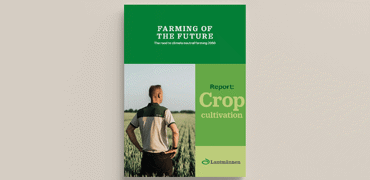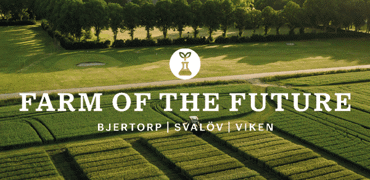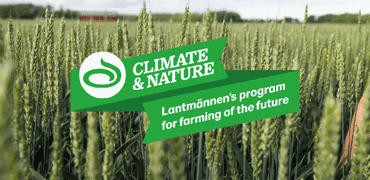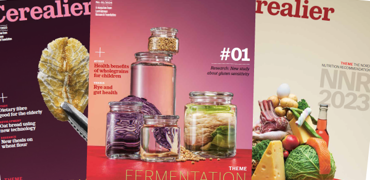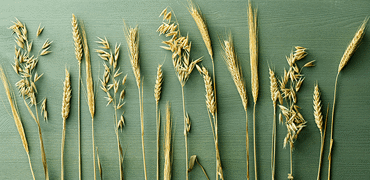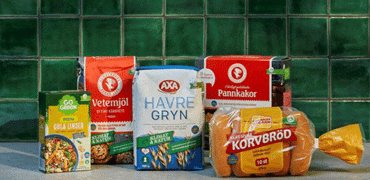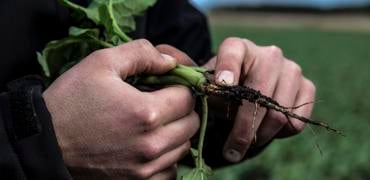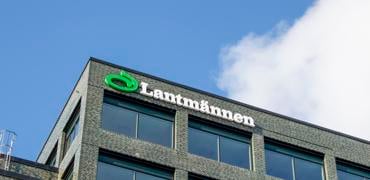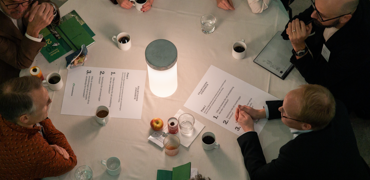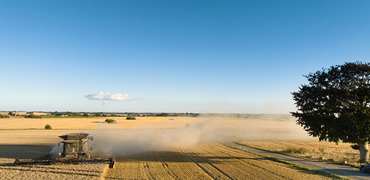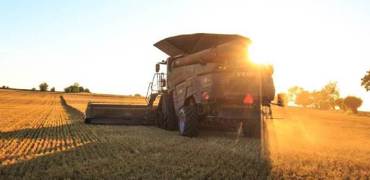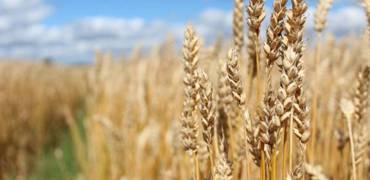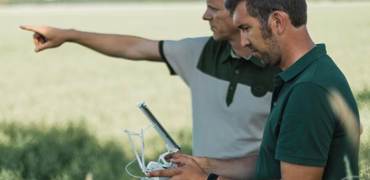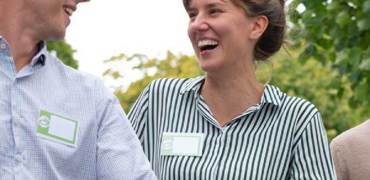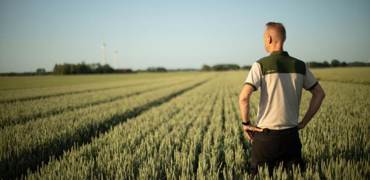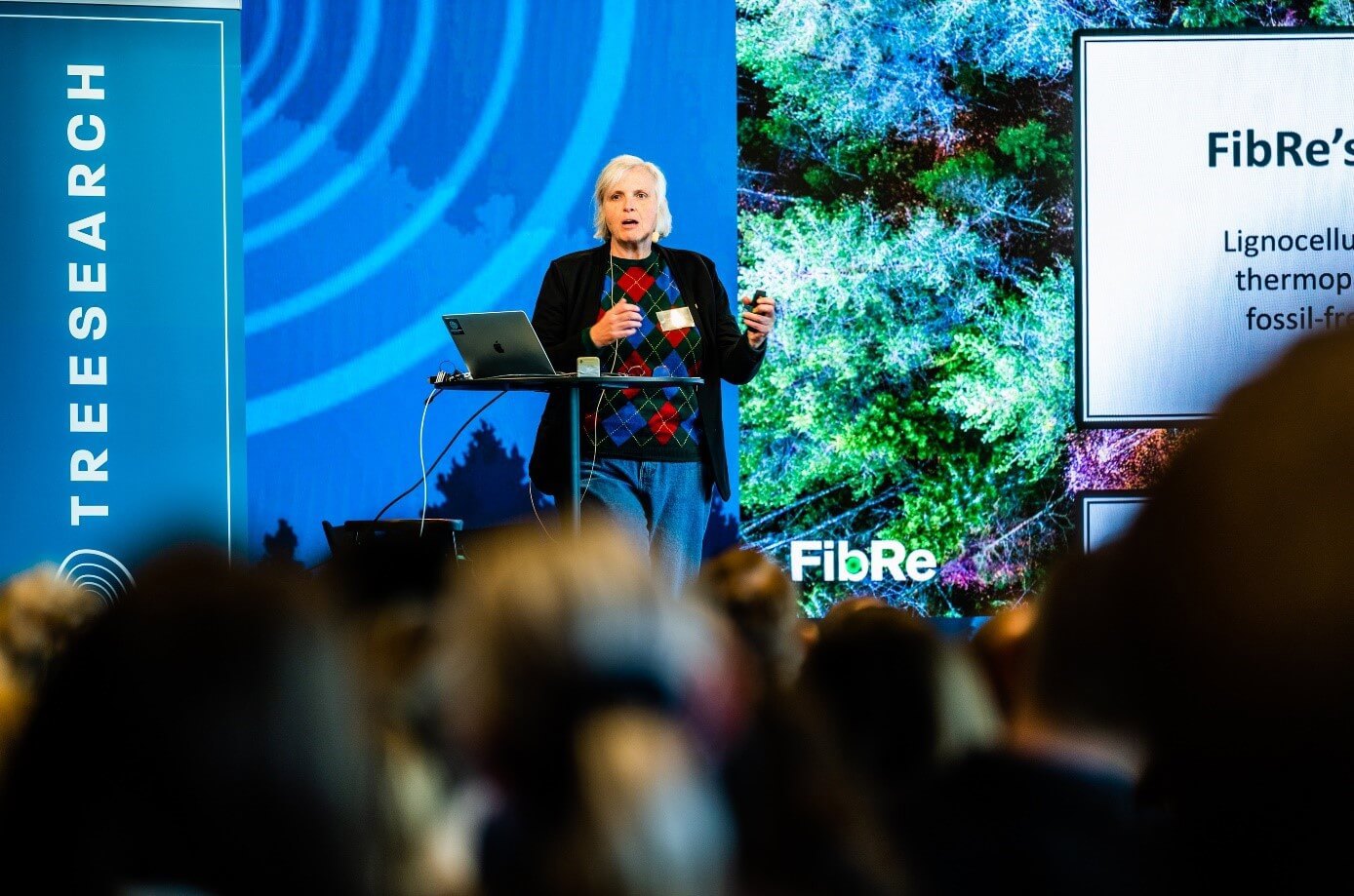
From farm to research
Anette Larsson grew up on a farm just outside of the small town of Fjugesta in the middle of Sweden. Her first contact with Lantmännen was when as a young child she went to visit the local Lantmännen office with her mother, found near the train station. The oldest among her siblings, she was used to helping out on the family farm, driving the tractor amongst other things.
“I developed an interest in technology quite early and wasn’t afraid to get my hands dirty. This led to a technical focus in my choice of senior high school education and after graduation I continued in that direction” says Anette Larsson.
But the path from tractor driving to researcher was not obvious. However, after a degree in civil engineering at Chalmers and the award of a scholarship, her career began heading towards research.
“I have always wanted to learn more about things, and the combination of learning and teaching was perfect for me. On top of that I am curious and knowledge-driven, that’s why it gives me so much pleasure to do research,” she says.
Anette Larsson’s research journey started by looking at different techniques to study DNA-molecules, whereafter she spent six years at a global medical corporation, before returning to academia.
Why did you return?
“I wanted to study subjects of my own choice and teach students.”
What is the primary objective with your research, what is your driving force?
“The goal of my research is to contribute with knowledge to create a fossil-free society, and I’m driven by teaching and tutoring doctoral students.”
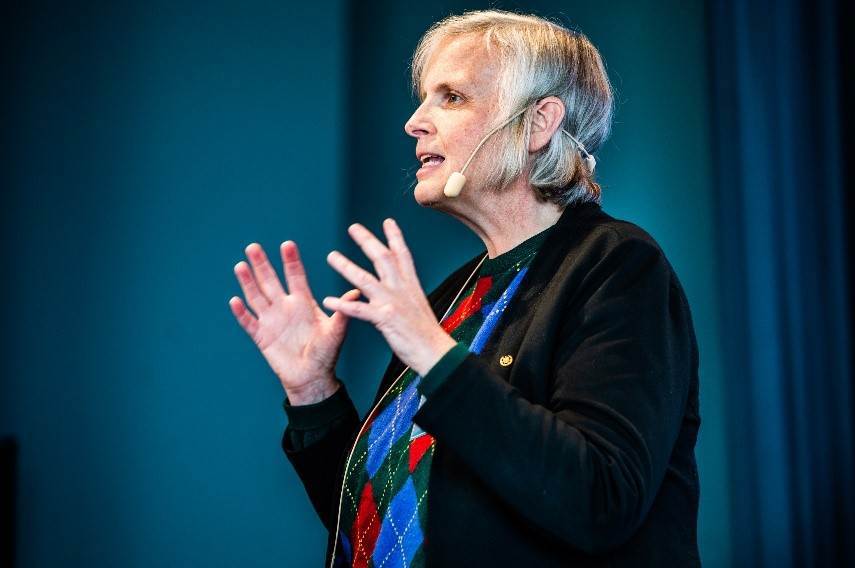
Lantmännen and the Lantmännen Research Foundation supports, on an annual basis, projects at universities all over Europe. One of many being supported right now is the five-year long research consortium FibRe, with its vision of a sustainable society where thermoplastic fossil-based plastics are replaced by lignocellulose-based materials. Anette Larsson is the administrator of the project, where 15 Phd students and post-docs work towards the same goal.
What’s most exciting about the FibRe project?
“FibRe is an important and challenging project. The greatest challenge is to make thermoplastic based on fibral structures combined with the other difficulty that the project spans many disciplines. You need to understand how the materials work on a scale from millimetre to nanometre.”
Lantmännen is one of 20 partners. Can you describe the collaboration?
“Lantmännen is represented on the board and the evaluation group that scientifically assess the applications. They also contribute with inputs that help the doctoral students and researchers moving forward. They also contribute with financial support.”
What else has Lantmännen contributed to the project?
“As part of the project, we work with a variety of plant based materials. Lantmännen brings knowledge about the raw material that comes from agricultural production, such as knowledge about wheat grass. This knowledge is of great importance, without it we could not make progress. The purpose of collaborating cross-border with the industry and the academia is also that we get different, useful perspectives and experiences.”
You have collaborated with Lantmännen on many different projects. What makes them a good partner?
“They are always very clear and concrete with what they want to achieve, which makes it easy to be an administrator of a project. They also have efficient and competent staff, which makes them easy to work with and last but not least they are committted to making the project a success for all parties involved.
What’s your advice to other researchers who are curious about working with Lantmännen?
“Contact them! They will always bring the mindset of “what’s in it for us?”, as in how can the project translate into increased value for farm land, offering clear benefits for farmers and/or their businesses. This is important to have in mind, but not really that limiting after all, since the Lantmännen operates in such a vast range of business.
- - -
Questions about this collaboration?
Contact Annelie Moldin, R&D Manager Food, Bioenergy & Green Materials:
annelie.moldin@lantmannen.com






